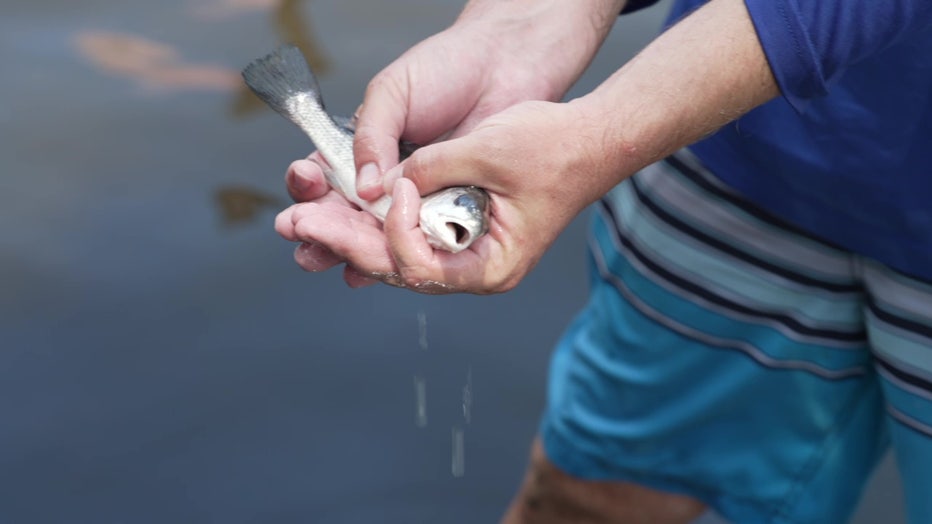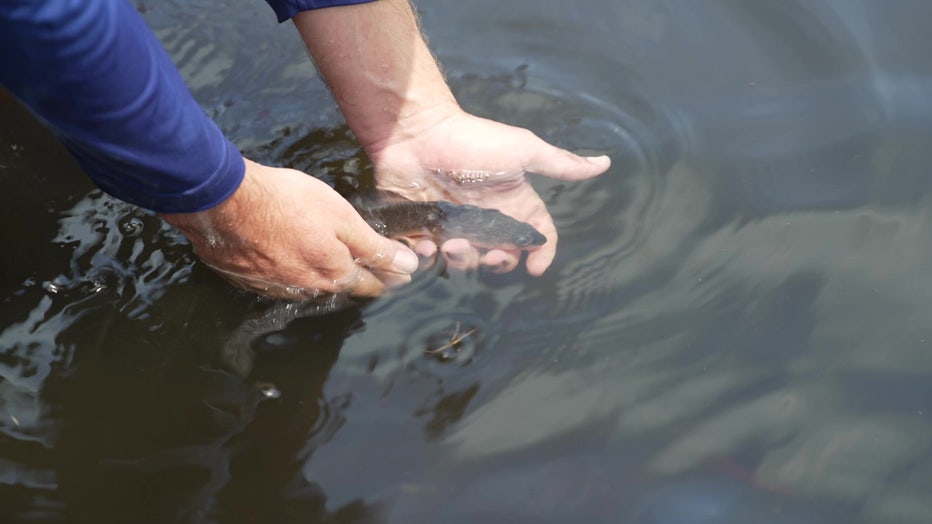Mote Marine releasing red drum fish to counteract red tide and pollution
Red drum fish released by Mote Marine to combat red tide
Mote Marine released 4,000 fish into Sarasota Bay.
SARASOTA, Fla. - In a remarkable effort to combat the detrimental effects of red tide and pollution on Florida's game fish species, the Mote Aquaculture, Fisheries, Ecology, and Enhancement Program in Sarasota has achieved a significant milestone by successfully raising and releasing red drum fish into local waters.
This groundbreaking initiative aims to bolster the survival rates of game fish, which have been severely impacted by the devastating consequences of red tide and other forms of pollution.
WATCH: Red snapper season begins
Mote Marine released approximately 4,000 of the 20,000 red drum into Phillippi Creek in Sarasota Bay as a part of an ongoing partnership with Salt Strong design to find the most effective methods to replenish and enhance Red Fish populations.

Mote wants to improve the resilience of Florida's game fish.
"So the fish that we're releasing today were reared at Motes aquaculture park. We spawned them in the middle of January and have been rearing them up to about the size of 6 to 10 inches. We tag them, and now we're gonna put them in a release site, monitor them to see how well they survive and what the impact is on the local fisheries," Ryan Schloesser with Mote Marine Lab said.
READ: Gov. DeSantis to send $130 million in funding to the Indian River Lagoon
Recognizing the urgency of the situation, the Mote Aquaculture Program has employed advanced aquaculture techniques to breed and nurture red drum fish. With meticulous care and state-of-the-art facilities, these fish have been cultivated to a size and strength that maximizes their chances of survival upon release.

Red drum fish are being released into local waters to improve the environment.
By reintroducing red drum fish into the local waters, the Mote Aquaculture Program aims to enhance the resilience of Florida's game fish species. Red drum, known for their hardiness and adaptability, play a crucial role in maintaining a healthy ecosystem.
Their reintroduction provides a glimmer of hope for the recovery of other fish species affected by red tide and pollution. The program's success signifies a significant step forward in safeguarding Florida's game fish populations and underscores the importance of proactive conservation efforts in mitigating the impacts of environmental crises.

